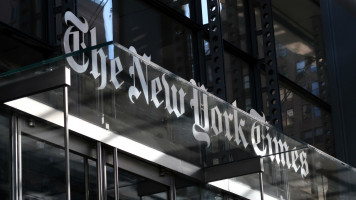Intense diplomacy as world leaders scramble to confront IS
Russian President Vladimir Putin arrived in Tehran Monday on his first trip to Iran in eight years, for talks on the devastating conflict in Syria where both countries support Damascus.
He held talks with supreme leader Ayatollah Ali Khamenei and President Hassan Rouhani on the one-day visit, while also taking part in a summit of gas-exporting countries.
During the meeting, Iran's supreme leader said US policies in the region were a threat to both countries and called for closer ties between Tehran and Moscow.
| The Americans have a long-term plot and are trying to dominate Syria and then the whole region - Ayatollah Ali Khamenei |
"The Americans have a long-term plot and are trying to dominate Syria and then the whole region... This is a threat to all countries, especially Russia and Iran," Ayatollah Ali Khamenei said at the meeting on the sidelines of the Gas Exporting Countries Forum (GECF) Summit in Tehran, according to the state news agencies.
"The United states is trying to achieve its failed military objectives in Syria now through political means," he added, referring to proposed peace talks to end the civil war in Syria.
Russian President Vladimir Putin earlier signed a decree lifting the ban on supplying Iran with uranium enrichment equipment.
It is linked to Russia importing enriched uranium from Iran, according to the official Russian government website.
According to the document, the ban on supplying goods, materials and equipment no longer applies "to the exports of the enriched uranium from the Islamic Republic of Iran."
|
||||||
Kerry in Abu Dhabi to build opposition coalition
Meanwhile, US Secretary of State John Kerry arrived in Abu Dhabi on Monday to meet his Emirati counterparts on efforts to build a Syrian opposition coalition to lead peace talks with Damascus.
Kerry has scheduled meetings with Abu Dhabi Crown Prince Sheikh Mohamed bin Zayed al-Nahyan and United Arab Emirates Foreign Minister Sheikh Abdullah bin Zayed al-Nahyan.
US officials said he also hoped to meet Saudi officials.
The American envoy is spearheading international efforts to halt Syria's four-and-half-year civil war by putting opposition and rebel factions around a table with Bashar al-Assad's government.
But the former defence secretary, Chuck Hagel, believes the United States should be more focused on defeating ISIS than ousting Syrian President Bashar al-Assad.
Hagel, told CNN on Sunday "There is no military solution to this. We are up against an ideology, we are up against a reality, a set of dynamics we've never seen before - sophistication of social media, the military prowess, the tactical strategic prowess that ISIS possesses, the funding."
"So we should more clearly define, what is our political strategies? What are our priorities? Is Assad the enemy or is ISIS the enemy?" Hagel added.
Major powers with an interest in the conflict have set an ambitious target date of 1 January for talks and a ceasefire to begin, but the participants have yet to be identified.
Saudi Arabia, which supports some of the rebel forces active on the battlefield, has taken charge of assembling a motley coalition of exile groups, armed factions and Islamist parties.
These would exclude IS and the al-Qaeda-affiliated Nusra Front.
However, they could draw in groups such as Nusra's powerful Islamist ally Ahrar al-Sham.
The hope is that if a broad enough "moderate" opposition coalition can enter a ceasefire and peace negotiations with Assad's loyalists, a path to a political transition an be found.
Monday's one-day stopover in Abu Dhabi is the first leg of a Middle East tour that will also take Kerry to Israel and occupied the Palestinian territories on Tuesday for talks on an upsurge of violence there.
Jordanian king in Moscow
In the same context, Jordan's King Abdullah will hold talks in Moscow Tuesday with Russian President Vladimir Putin on how to tackle "terror groups" led by IS in Syria, an official source said.
Jordan reached an agreement with Moscow last October to ensure Russian bombing of targets in southern Syria, which borders the country, does not target Western backed rebels known as the Southern Front - a grouping it supports as a buffer against the spread of hardline extremist groups in an area that also borders with Israel.
Diplomats say the Russian air force has stepped up in recent days bombing of mainly civilian targets in rebel-controlled towns in southern Syria, including parts of rebel-held Daraa city that are run by moderate rebel groups backed by Jordan.
Jordan has not publicly commented but the monarch, who has close personal ties with Putin, recently publicly expressed enthusiasm about the intensive Russian military campaign in Syria, saying it offered a window of opportunity and that Moscow had a key role in defeating the ultra-hardline militants.
Jordan, however, is Sunni-dominated and closely aligned with Washington, so Moscow's deal with Jordan could mark a shift in the alliances engaged in the Syria conflict.
UK joining the fray
In Paris, British Prime Minister David Cameron, speaking at a joint news conference French President Francois Hollande Monday, said he was convinced the United Kingdom should carry out military airstrikes alongside France and other partners in Syria in an effort to defeat IS.
Cameron also said he had offered France use of a British airbase in Cyprus as well as additional assistance with air-to-air refuelling.
He also said that he would step up efforts to share intelligence with France and other European partners, adding that he planned to present a comprehensive strategy to defeat IS to parliament later this week.
Hollande said that France planned to intensify its airstrikes on IS targets in Syria with its sole aircraft carrier, the Charles de Gaulle getting into position on Monday for strikes.
French President Francois Hollande will later this week meet with Russian counterpart Vladimir Putin to discuss IS and the war in Syria in the wake of the Paris attacks.


